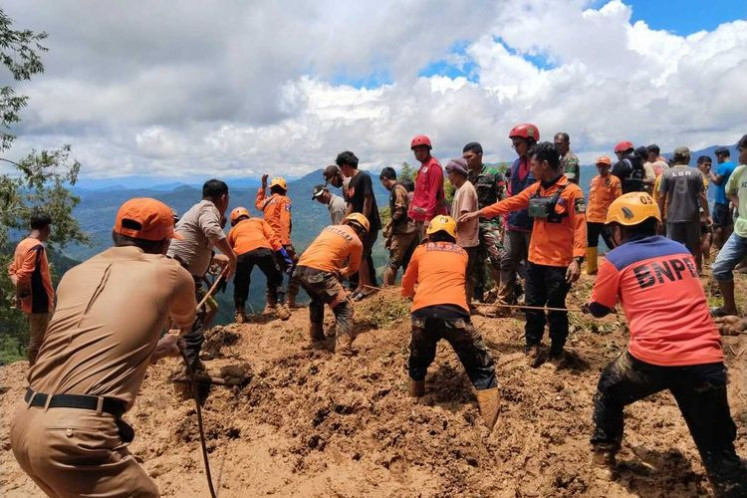Companies need compliance mechanisms to prevent graft
As the Corruption Eradication Commission (KPK) moves to target corporations, Indonesian business entities are expected to have their own internal graft prevention systems in place
Change Size

A
s the Corruption Eradication Commission (KPK) moves to target corporations, Indonesian business entities are expected to have their own internal graft prevention systems in place.
Such systems is having important for any corporation — both large and small — as it indicates a company’s commitment to preventing corruption.
However, most Indonesian companies are still considered to lack such mechanisms, prompting the KPK to move to begin formulating guidelines earlier this year to help companies build adequate compliance systems.
“There are, however, several factors that make this initiative difficult, including the size and scope of a company, as well as its readiness [to implement a compliance system],” KPK deputy chairman Laode Muhammad Syarif said during a recent discussion.
His statement echoed a recent study by graft watchdog Transparency International Indonesia (TII), which showed that most Indonesian companies had yet to implement sufficient internal antigraft measures, leaving them — as well as their employees — vulnerable to being implicated in graft and bribery cases.
The compliance system currently being formulated by the KPK is also expected to cover small-scale businesses.
Aside from its primary function of promoting integrity among employees, the system could also help companies escape prosecution if an employee was implicated in a graft case, law expert Agustinus Pohan said.
“A compliance system could be considered by investigators and judges as a mitigating factor,” Agustinus said. “If a company doesn’t have compliance guidelines or a similar prevention system in place, the company could be automatically charged with allowing the graft to take place.”
A 2016 Supreme Court decree designed to provide law enforcement officials with a legal avenue to bring companies that benefit from graft to justice, stipulates that corporations can be held responsible if they allow such illicit practices to occur, or if they fail to take necessary measures to prevent corruption and do not promote compliance with the law.
Agustinus said the KPK should move quickly to issue the guidelines to allow companies to begin building internal compliance systems. “The guidelines should be applicable for both small and large companies.”
As of December, 170 individuals from the private sector have been recorded by the KPK as having been alleged to have committed or having been convicted of graft; making it the largest group on the KPK’s suspect investigation list, after state officials, lawmakers and local councilors.
Togi Pangaribuan of the Indonesian Chamber of Commerce (Kadin) said that businesspeople had welcomed the KPK’s plan, while, at the same time, they also hoped a regulation on facilitating payments would be put in place to provide legal certainty for private sector actors.
Facilitating payments are not regulated in Indonesia, and therefore are still considered a form of illegal gratuity, if not bribery.
“The United States already has regulations on the limits of facilitating payments for business or political donation purposes, but Indonesia does not, which leaves us prone to being arrested if we provide them to officials,” Togi said.
The KPK, along with the Law and Human Rights Ministry, is currently drafting a government regulation on gratuity control aimed at providing clear categorization of the types of gifts government officials are permitted to receive.
“The KPK has received reports of alleged gratuity practices, which are actually valued less than what could be defined as illegal gratuity,” said Rasamala Aritonang from the KPK’s legal division.
“The regulation will not only help government officials, but also businesspeople as they will be able to operate without fear of being implicated in alleged graft cases,” he said, revealing that the draft was still under review by the ministry.









